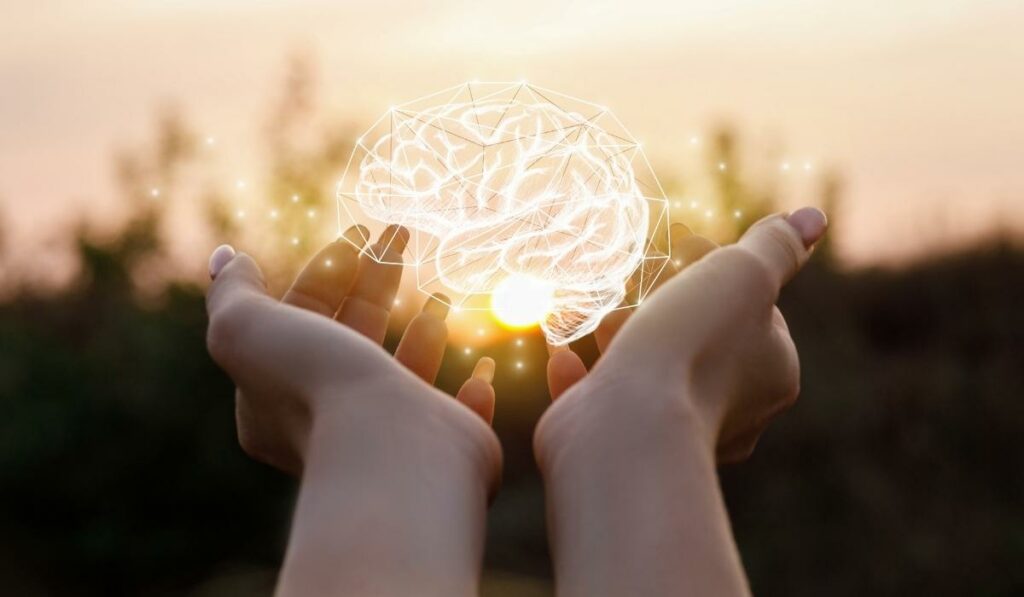Mindfulness is often confused as a very complex subject that is something out of the reach of brain activities. But very few people know that mindfulness itself is a brain exercise that works on the brain’s improvement. There are several questions about how and by what means does mindfulness affects conscious and unconscious brain activities.
Not even the best scientists have full knowledge of the functioning of the human brain. It is still a mystery to be resolved. We know how some parts of the brain perform different functions, but what about the conscience? What happens when we start practicing mindfulness regularly? How does it affect our mind and body? What changes occur in the brain activity after practicing mindfulness? All these questions will be answered here.
What is mindfulness?
To understand the various effects of mindfulness on brain activity, it is first essential to know what mindfulness is. Mindfulness is a characteristic that every human possesses; you don’t have to capture it up; you have to understand how to activate it. Our brain regularly develops over time; with every experience, every incident, and everyday behavior, they all affect the functioning of our brain. It is a practice that allows us to focus on our feelings and emotions at the moment, without allowing any judgemental views or opinions.
Breathing practice, guided imagery, meditation, and several other activities are involved in practicing mindfulness. All these practices help in improving the relaxation process and relieving stress. Even though there are numerous ways to practice mindfulness, all these practices focus on achieving focus, relaxation, concentration, and self-awareness and improving psychological health. It fills us with a sense of empowerment as we become more and more focused and aware of ourselves and our surroundings. Practicing mindfulness allows us to suspend judgment and explore our natural inclination about the nature of the brain, pursuing our encounter with comfort and compassion for ourselves and others.
Mindfulness & Brain activity
There is evidence of various impacts of mindfulness on brain activity and parts. Some areas of the brain can shrink, and some can expand due to regular mindfulness practice. Some of the correlations of mindfulness and brain activity, as well as the effects of mindfulness on brain activity, are stated below:
• Long-term meditators had more substantial brainpower as they matured than non-meditators, as per a study done by UCLA. People who had been meditating for an average of 20 years had more grey matter volume throughout the brain; while older meditators still had some volume loss compared to younger meditators, it was not as prevalent as in non-meditators.
• It was found during a study, those who practiced mindfulness regularly for an extended period felt less pain than those who did not practice mindfulness. The reason was that the parts of the brain linked to emotions and memory were less active. It was believed that practicing mindfulness may have decreased the connection among these two parts of the brain, due to which these people were able to feel less pain.
• Individuals with higher movement in those areas of the brain connected to positive feelings showed a higher prevalence of mental and emotional well-being in a study that examined reaction to positive images.
• Mindfulness meditation has the advantage of deactivating your sympathetic nervous system or your fight mode response. When you are confronted with danger, your sympathetic nervous system goes into overdrive, generating stress hormones that help you either flee or retaliate. When the threat has passed, your parasympathetic nervous system kicks in, allowing you to relax and lay back.
• Mindfulness can also help us cultivate better relationships. A direct link between mindfulness practice and better relationships has been discovered. Among other factors, the couples who practiced mindfulness regularly express a higher sense of connection and relationship satisfaction.
• It has been discovered that mindfulness can help people keep their attention steady and concentrate on the current moment. Those who perform mindfulness training show better results in staying alert and focused, particularly on visual and listening tasks.
• Mindfulness has also been shown to aid in the improvement of three distinct qualities of attention: stability, command, and efficiency. It induces deep relaxation in the body and gives the knowledge and resources required to cope with stress. The mind calms, and the body encounters a state of tranquility as the body and mind learn to relax through breathing exercises and methods.
• Meditation can counteract the adverse effects of stress hormones, which overburden our bodies and emotions. Feelings settle and stabilize as hormone levels return to normal. And, whenever we are furious or nervous, we will be better able to deal with extreme emotions and circumstances by using our breath to calm down and relax.
Conclusion
Even as mindfulness can produce remarkable changes in the brain and outlook, it does not happen overnight and is not a drug to treat. Understanding to let go of expectations and enjoy meditation is difficult — but it is also primarily the purpose. The more you practice being present at the moment without judgment or perceptions, the better you will become at it. Trying to learn is a highly individual and personal process, with the common factor being sheer hard work. And science tells us that reconfiguring our brains can truly guide us towards a happier future if we put in the effort. Although studies have confirmed meditation’s cognitive and emotional benefits for youths, more research is likely required before it becomes more widely accepted.
It may now be safe to say that mindfulness is positively changing our mental and physical well-being, and fundamental changes are happening in the brain and its activity by regular mindfulness practice.





